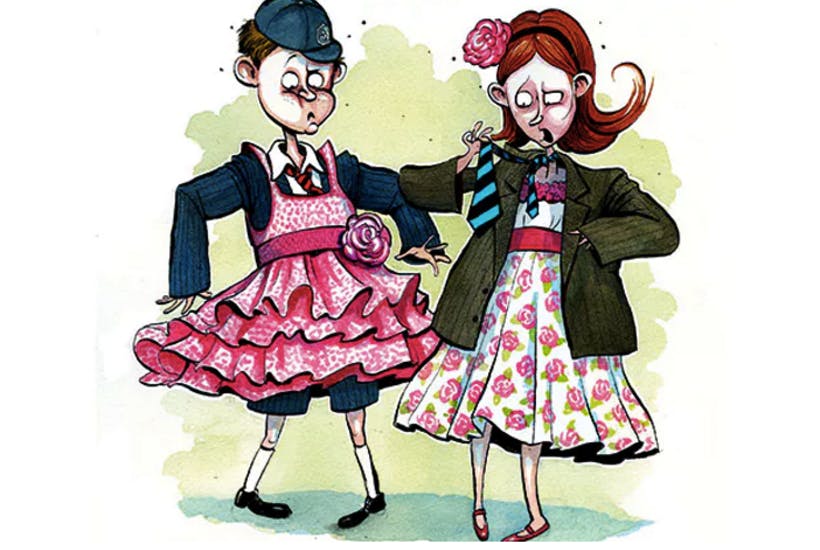The Daily Telegraph dubbed it an ‘admirable move’ when it shared the news on Facebook that John Lewis has decided to scrap labelling children’s clothes according to gender and has opted instead to make them all unisex. I wonder if John Lewis will be extending this wisdom to the adults’ clothes department too, including swimwear? To borrow a question from the vital campaign group Let Clothes Be Clothes; why not #makeitunisex?
In a way it is comforting that we live in a society where lobbying over gender specific clothes is a big deal rather than worrying that you’ll be stoned to death for premarital sex or killed for attending Midnight Mass. But at the same time, the weight we attribute to the moral and political pronouncements of retail giants is strange.
Big business is suddenly setting the moral and political agenda from environmentalism to sexuality. After all, why do we care what John Lewis thinks about gender stereotypes any more than we do the local butcher?
John Lewis’s announcement is not simply another episode in the row about gender stereotypes. It is yet another reminder that the pusillanimous efforts of churches over the years to speak out on moral issues has left a void which certain organisations are clamouring to fill. The CEO of Starbucks for example made more noise about gay marriage than the Archbishop of Canterbury.
If we consider how many people opt to spend Sunday mornings in Westfield shopping centre rather than go to church it’s perhaps unsurprising that CEOs and prominent entrepreneurs have gradually become the secular prelates of our time. Materialism is the new religion and we reverently follow its ministers.
Of course, at the risk of being a tad cynical these ostentatious right-on gestures from businesses will possess a financial incentive, so presumably John Lewis thinks it’s customers will agree with them.
But I’m sceptical that the majority do, because deep down, I suspect the average shopper still thinks there are fundamental differences between the sexes, including their tastes in clothes. I also have a hunch that parents welcome categories when trying to navigate the children’s clothing section ten minutes before closing time.
Gender matters to most of us, even if we feel too afraid to say it. This reality struck me when I attended my first antenatal class earlier this year. The woman leading the session asked if anyone present didn’t know the sex of their unborn child. I was the only woman amongst twenty people or so who raised her hand. ‘Aren’t you dying to know?’ they all asked incredulously.
If the majority of us believe that gender is fluid then why do we give a damn whether our child is born male or female? Just as so many people gleefully observe that the Church is out of touch with people in the pews, John Lewis might want to consider if their latest pronouncement genuinely enjoys popular support among its customers.






Comments